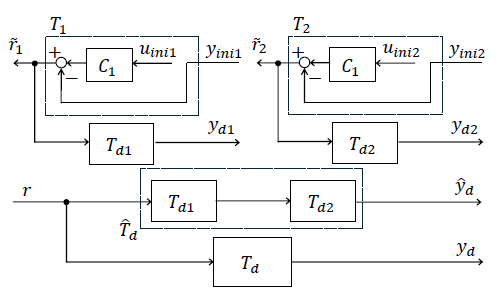多入出力温度制御系設計法
|
Japanese 
|
Chinese 
|

Research Topic: Design Method for Control Systems with Multiple Controllers Using Data-Driven Control
In the design of control systems, the approach of deriving a mathematical model of the controlled system and designing an optimal controller based on that model is one of the rational methods. To obtain a mathematical model of the system, there are approaches such as first-principle modeling, which derives the model from physical laws like equations of motion, and system identification, which constructs a model from input-output data of the controlled system. However, for complex systems, such as multi-input multi-output (MIMO) temperature control systems or multi-axis robotic control systems, or when acquiring sufficient data for identification is not practically feasible, it becomes difficult to construct an accurate model. Against this backdrop, data-driven control, which designs and adjusts controllers directly from input-output data without going through a model of the controlled system, has been proposed.
Traditional data-driven control typically addresses controller design for single feedback systems or two-degree-of-freedom control systems. In contrast, this research focuses on data-driven control for systems with multiple controllers. Specifically, we propose extending the E-FRIT (Extended Fictitious Reference Iterative Tuning) method, which considers input variations, to systems with multiple controllers. The effectiveness of the proposed method is demonstrated through numerical examples.

